



CONTENTS
Alumni Award | pg. 4
Hamner Lecture | pg. 5
History Day | pg. 6
Faculty Updates | pgs. 7 & 12
Staff Awards | pg. 10
Student News | pg. 14
Graduate Studies | pg. 16
Advancement | pg. 18
Donations | pg. 19





Alumni Award | pg. 4
Hamner Lecture | pg. 5
History Day | pg. 6
Faculty Updates | pgs. 7 & 12
Staff Awards | pg. 10
Student News | pg. 14
Graduate Studies | pg. 16
Advancement | pg. 18
Donations | pg. 19
Chair: Dr. Linda Borish
Dr. David Benac
Dr. Robert Berkhofer
Dr. Luigi Berto
Dr. Amos Beyan
Dr. Sally Hadden
Dr. Evan Kutzler
Dr. James Palmitessa
Dr. Ángela Pérez-Villa
Dr. Eli Rubin
Dr. Larry Simon
Dr. Anise Strong
Dr. Nathan Tabor
Dr. Wilson Warren
Dr. Victor Xiong
Dr. Takashi Yoshida
The History Alumni Advisory Council met on October 23, 2024 and engaged in a lively conversation about various WMU issues. We first admired the new Dunbar Hall building and mentioned how several History classes meet in this building. We discussed some department matters such as enrollment and history and public history majors.
Dr. Borish presented that she Co-Chairs the Western Essential Studies Course Review Committee for this academic year; the courses are being reviewed as we are in our fourth year of WES. We explored the nature of our History WES courses and talked about the WES courses in general. The History Advisory Alumni Council shared ideas about history courses. We look forward to another excellent discussion for next time.
PLEASE VISIT OUR NEW WEBPAGE AT WMICH.EDU/HISTORY
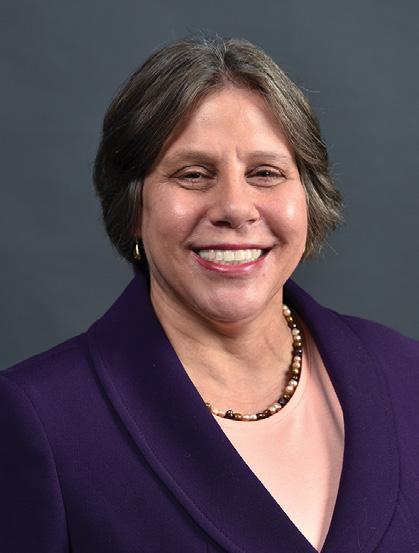
Welcome to our friends and supporters of the Department of History for the annual Newsletter!
We are excited to showcase Dunbar Hall as a new venue for several History courses and special events. Dunbar Hall has been used by the History Department and we are pleased to do so.
The fall had several events to showcase History. In the fall we featured the Dr. H. Nicholas Hamner Endowed Lecture in late October to an interested audience. Our guests, students, and faculty came to welcome Dr. Rose Marie Höefte, Professor of History, the University of Amsterdam. She spoke on “Confronting a Controversial Past: Dutch Colonial History in Asia & the Atlantic” in a lively talk. We also had the College of Arts and Sciences Alumni Achievement Awards on October 25, where we welcomed the first class of the Early Career Excellence Award, and this included History’s Dr. Caitlyn P. Dial, Ph.D. 2016.
Our faculty have been busy with giving presentations, writing publications, and community engagement. We invite you to read about our faculty and their activities. We anticipate another robust year for our faculty.
Once again we will host the District 6 contest for Michigan History Day at Western Michigan University. We look forward to hosting these youngsters in person and hope they may be Future Broncos! We plan to use Dunbar Hall so that will be a welcome site for the gathering of young historians. We feature last year’s Michigan History Day in this newsletter.
On behalf of the Department of History, I wish you and yours a joyful, healthy and happy holiday season!

Dr. Linda J. Borish
The College of Arts and Sciences awarded an Early Career Excellence Award to Dr. Caitlyn Dial, Ph.D. in History 2016. This is the inaugural year for this award. Dr. Dial has served as the director of development for Michigan State University Libraries since 2022, where she leads a team of professionals and student interns. In her current role, she develops and manages a diverse portfolio of a major and principal gift prospects, emphasizing six – and seven – figure donations. She works closely with donors and campus partners to create giving opportunities, providing guidance on tax laws and university police to ensure mutually beneficial donations.
Prior to assuming this position, she was executive director of Michigan Women Forward: HERstory, where she led the organization through a successful merger, managed a major relocation of the museum, and orchestrated the annual Michigan Women’s Hall of Fame Awards dinner, consistently raising over $100,000 each year. She also worked closely with the board of trustees, serving as an ex-officio member on various committees and was responsible of overseeing the institution’s budget.
Dial received her doctorate in history from Western Michigan University in 2016, where she also served as an instructor and was essential in the construction of HIST 2110: History of the United States Since 1877 and History 3150: History of Popular Art and Architecture in America. She is actively involved in several boards and committees, including the board of directors of the Brighton Area Historical Society and as a trustee for the Brighton District Library. She is president of the Michigan Museums Association and a member of the WMU Department of History Alumni Advisory Council. Additionally, Dial co-chaired the 2019 Association of Midwest Museums Annual Conference.
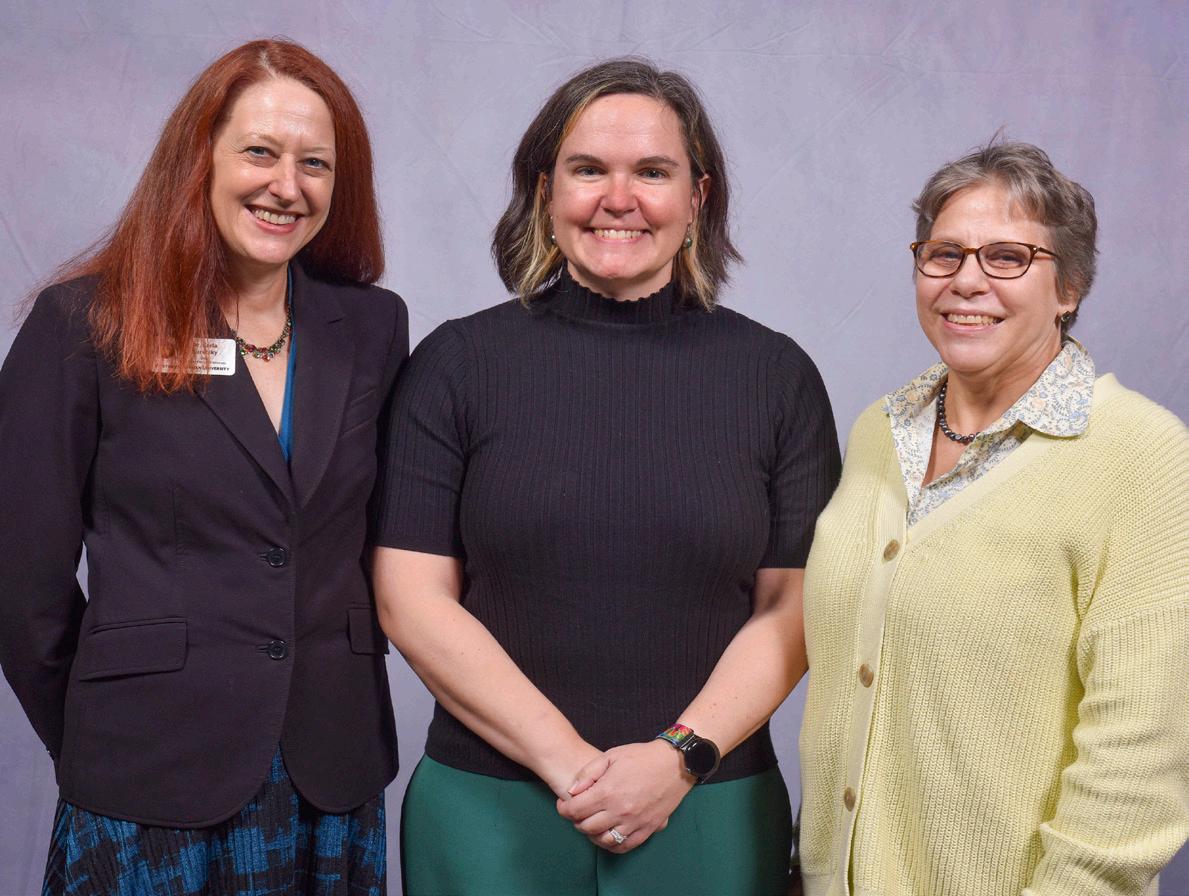

Shares her findings on the Dutch reckoning with their past history
In October we welcomed Dr. Rosemarijn (Rose Marie) Höefte to campus for this year's Dr. H. Nicholas Hamner Lecture. Dr. Höefte is a Professor in the History of Suriname since 1873 at the University of Amsterdam, and studies the efforts by the Dutch government to commission new research into the activities of their ancestors.

The lecture, titled, "Confronting a Controversial Past: Dutch Colonial History in Asia and the Atlantic," was well-received and well-attended by our students, alumni, and the community at large. The central question of this topic: how and why has Dutch colonialsm become so prominent in the last decade. Activists in the Netherlands with connections to the post-colonial period as well as politicians have been working to put local slavery and colonial past on the legislative agenda.
These studies illustrate an inescapability of the colonial past remaining visible. Various government entities and state institutions have commissioned this research into the Dutch past. The impact is still being measured and continues to be addressed, including by the prime minister and the king.
Her presentation included much about what these projects are teaching the Dutch people, and how complex histories are shared and received when new awareness comes to light.
Dr. Höefte also spent a portion of her time in Kalamazoo visiting with our students to share her expertise and global perspective. Anyone interested in these topics can find her published work at most scholarly journal archives.
Western Michigan University’s Department of History hosted the Michigan District 6 competition of the National History Day contest on WMU’s campus on March 9. District 6’s contestants represent schools from the state’s southwestern counties. This was the tenth year that the History Department hosted the competition. A total of 127 students participated in the 2024 contest, which was higher than the previous year when the contest was held virtually.

Students enter the contest as individuals or as part of a group of up to five members. Individuals or groups develop projects in one of five contest categories: exhibits (poster displays), websites, dramatic performances, documentaries, or papers. Students compete in one of three age groups: youth (grades 3-5), junior (grades 6-8), or senior (grades 9-12). Students’ projects also need to address the annual theme, which in 2024 was Turning Points in History. The top three place winners in each category and age group at the district level then qualify for the state contest, which was held on Saturday, April 20, on the campus of Central Michigan University.
Our district qualifiers did very well at the state contest. A total of 22 individuals or groups from District 6 either finished in the top three in the youth category or qualified as national finalists from the junior or senior categories. Students in the youth category do not compete in the national contest. A total of 10 students from District 6 qualified for the national contest. Five other students were national alternates. The national contest was held in June on the campus of the University of Maryland in College Park.
At the national contest, Hayden Washegesic from Baseline Middle School finished in fifth place in the Junior Individual Performance category. His entry title was “AIM: The Natives Fight Back.” Hayden was also selected for the Outstanding Affiliate Junior Division, Smithsonian’s National Museum of American History Performance Showcase.
Kate VandenBogerd, Macy VanDyke, Madison DeVries, and Maybelle Schipper from Providence Christian School in Kalamazoo placed in the top 30 in the Junior Group Website category. Their entry title was “Florence Nightingale: The Lady with the Lamp.”
Aliah Mohmand from Kalamazoo Central High School placed in the top 30 in the Senior Individual Exhibit category. Her entry title was “The Jonestown Tragedy: A Turning Point in Society’s Perception of New Religious Movements.”
The Department of History is now preparing for the District 6 contest in 2025. It will be held on WMU’s campus on March 8. The 2025 theme is Rights and Responsibilities in History.
- Dr. Wilson Warren
Pictured right: Dr. Pérez-Villa & the students of Colonial Latin America (HIST 3702)

This past August Professor José António (“Joe”) Brandão retired after serving 27 years in the Department of History. Brandão received his Ph.D. from York University in Toronto. He is a specialist in the History of New France and taught courses in Native American History, Colonial North American History, and Canadian Studies. He is the author of ‘Your fyre Shall burn no more’: Iroquois Policy Towards New France and Her Native Allies to 1701 and has published edited translations of documents, including two volumes (one with Joseph L. Peyser) of records from Fort Michilimackinac, a seventeenth-century French fort in Upper Michigan. Those records are now on loan at WMU Libraries as part of the French Michilimackinac Research Project collection which Brandão co-directs. Brandão also played a central role in the establishment of a Graduate Certificate in Ethnohistory and the Canadian Studies group on campus, and was a curator of the “Shared Waters: Natives and Newcomers in the Great Lakes” exhibition that brought together scholars from across campus, the U.S., and Canada. More recently, Brandão served from 2011-2016 as department chair, before that Associate Chair, Director of Undergraduate Studies, and also chair of the former university Committee that Oversaw General Education (COGE).
- Dr. James Palmitessa
Dr. Victor Xiong, Professor of History, completed his book, A Thorough Exploration in Historiography published by University of Washington Press. In the long span of human history to the twentieth century, almost all great leaders of empires and states were men, with few exceptions. One of them was Heavenly Empress Wu Zetian. She is the only female ruler in history to have replaced a powerful dynasty with her own in a major country and crowned herself emperor of China. This book is about how this daughter of a concubine, who began life in the palace as a lowly concubine of Emperor Taizong (see Heavenly Khan) at a very young age, overcame all obstacles in a man-dominated world and rose to the summit of power in medieval China.

Dr. John Saillant, Professor, departments of English and History, won an award in Summer 2024 of “Honorable Mention,” the second-highest one given, from the Historical Society of the Episcopal Church for article, “A Black Woman’s Baptism in the Episcopal Church: Prudence Gabriel in an Hour of Crisis, 1812,” Anglican and Episcopal History 92:4 (Dec. 2023):581–611. Several archival trips to the Library of Congress, the Rhode Island Historical Society, and the University of Rhode Island special collections were funded by the Burnham Macmillan History Endowment as well as by the Historical Society of the Episcopal Church and the Episcopal Women’s History Project.
Assistant Professor of History, Dr. Ángela Pérez-Villa, received two awards: the WMU Women's Caucus Gender Scholar Award, for her work on gender, and an Honorable Mention for the 2024 Paul Vanderwood Article Prize from the Conference on Latin American History (CLAH) for her article, “Enslaved Litigants, Emotions, and a Shifting Legal Landscape in Cauca, Colombia (1825–1831),” published in the Journal of Social History (Vol. 57). This prize is given annually to recognize the best article in Latin American history. Dr. Pérez-Villa will be presented with the award at the CLAH reception during the American Historical Association (AHA) 2025 meeting in New York City. Congratulations to Dr. Pérez-Villa on this well-earned recognition!
The Department of History announced a partnership with the Organization of American Historians (OAH) to establish the Joseph L. Peyser Prize for New France History. Valued at $2,000 and awarded biennially, this prize celebrates outstanding scholarship in New France history.
“The College of Arts and Sciences deeply values outstanding, innovative scholarship,” says Dr. Carla Koretsky, Dean of the College of Arts and Sciences. “We are delighted to partner with the Organization of American Historians to present this prestigious book prize, made possible with the generous support of the Joseph L. Peyser Endowment for New France History.”
The Joseph L. Peyser Prize for New France History will recognize a published work that makes a significant contribution to the understanding of, and dissemination of knowledge about, the history and culture of New France— broadly defined to include the Great Lakes region, Southwest, the French Caribbean—and the Indigenous people with whom the French interacted therein.
The Joseph L. Peyser Endowment for the Study of New France, established by J. Randall (Randy) Peyser in honor of his father, Dr. Joseph L. Peyser, makes this prize possible. Dr. Peyser was an eminent scholar of New France whose extensive research in the archives of France, Canada and the United States led to the publication of edited translations of important documents. Many of these documents had long escaped researchers’ attention, as well as studies of French exploration and settlement, of French-Native relations, and French cartography. His research unearthed maps that corrected previous historical assumptions about key French-Native American sites in Illinois and Michigan, notably the rediscovered site of Fort St. Joseph. The first of this award will be given in 2026.
Dr. Scott Lingenfelter, instructor of our Russian history and world history courses, was awarded a College of Arts & Sciences Professional Development Grant last Spring to continue his research into cultural exchanges with the Soviet Union. He recently published an anthology titled, "Cultural Diplomacy: Issues and Perspectives" (Cognella Academic Press, 2023), and this new grant helped get him to the National Archives in Washington, D.C. and an archive at Yale University. Lingenfelter's research explores the Robert Shaw Chorale’s tour of the Soviet Union in 1962 as a timely window into U.S. cultural diplomacy at the height of international tensions. The Chorale’s tour points to deeper issues in American diplomacy, including the design and impact of sponsored culture programs, which now has the potential to inform reconstruction efforts in post-conflict Ukraine. These projects will further enhance the content of his world history and Russian history courses to better explain current-day parallels with regard to U.S.-Russian diplomatic relations.
Bailey Miller defended his Senior Thesis “Out on Highway 61: The Blues and Bob Dylan,” under the direction of Dr. Larry J. Simon with Dr. Evan Kutzler serving as second reader, during finals week of the spring semester. Bailey received a College of Arts and Sciences Undergraduate Research Grant and further grants from the Department of History to conduct his research. He traveled to the archives at the newly-opened Bob Dylan Archives in Tulsa, Oklahoma and the Bob Dylan Center, a museum adjacent to the Woody Guthrie Center in the Tulsa Arts District. While he pursued his studies at WMU, Bailey also worked as an assistant at the Zhang Legacy Collections Center on campus.

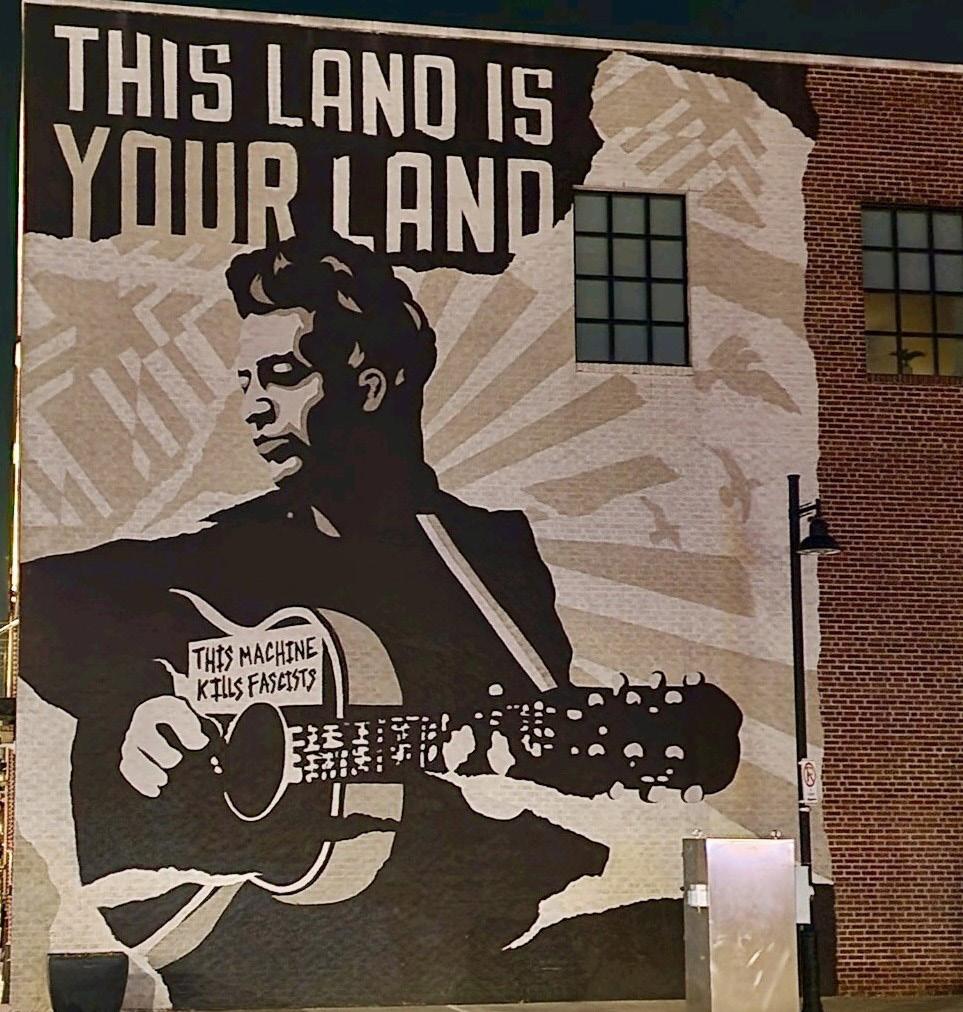
Abigail Ward was recognized as the department's Presidential Scholar winner this year. This award is the highest academic award given at WMU. In a convocation ceremony put on by the faculty senate, honorees are given an official citation by the university president and an engraved medal. Her accomplishments as an undergraduate are numerous, and include completing a Lee Honors College program, graduating with a concentration in Medieval Studies, and serving as president of our Phi Alpha Theta History Honors Society. In May, Abby's Honors College thesis, "The Impact of Personality on Pluralism in Medieval Valencia," was defended before a large audience on campus. The thesis details what led to Pluralist traditions under King James I of Aragon. Her thesis director was Dr. Larry J. Simon, with Dr. Pablo Pastrana-Pérez of the Department of Spanish serving as second reader.

Army Lieutenant Colonel (Ret.) Danny Bement -- BA in History and an MA from WMU -- was inducted into the US Army Cadet Command National Hall of Fame in October. He is the only WMU alumnus to have won this recognition, given at a ceremony in Arlington, Virginia. LTC Bement has had a lengthy career, serving 37 years across multiple postings and tours, 28 of those years being in active duty. WMU ROTC nominated Bement for this honor, and he was selected by his peers out of many nationwide candidates. Bement's service record includes: postings at Fort Bragg, North Carolina, Fort Bliss, Texas, and later as a captain in the 23rd Infantry Division in Vietnam. Post-combat assignments included being stationed at the Michigan Military Academy, West Point, and Fort Sheridan, Illinois.
LTC Bement has received the Bronze Star, Gallantry Cross, Infantry Badges, Legion of Merit Medals, and a Broad Sword medal. He still resides in Portage, Michigan and actively supports WMU ROTC and other programs.

In October, with support from the College of Arts & Sciences Professional Development Grant, I traveled to New Orleans for the National Trust for Historic Preservation's annual PastForward conference dedicated to furthering the cause of saving our historic places. This is a condensed version of my report submitted to the college after the visit.
- Kevin Bunkley
How we recognize and preserve the memory of our shared history is ultimately decided by those who are empowered to be its protectors. New Orleans faces this challenge more than many areas in the south, as the old marks of the eras of colonial rule, Jim Crow enforcement, and the scars from Hurricane Katrina are all still there and loom large over more recent efforts to preserve and honor that heritage.
"In 300 years, the French Quarter has never flooded," a local historian said during a boat tour, while pointing instead to the Lower Ninth Ward. It was there that a long-held failsafe passed between generations became real and necessary: the people are taught to keep axes in their attics to get out of their houses when the water comes for them. Next year is year 25 of still figuring out how to make the rest of us understand what happened.
The case study of New Orleans’ preservation story came in part from actor-activist Wendell Pierce, who grew up in the Pontchartrain Park neighborhood in the northeast of the city. That neighborhood and others are indeed now thriving, with free public green spaces and public schools that have reopened in restored buildings (some in the same spots as where Thurgood Marshall helped desegregate New Orleans’ public schools as a young lawyer).
Pierce argued people are empowered to protect their places. People are the reason that New Orleans has one of America’s most beloved and well-preserved national parks – jazz. A building can’t contain the sound of Prima, Armstrong, or Professor Longhair. Frenchman Street is a nightly masterclass in jazz and blues congealing together out of the windows of neon-soaked clubs doubling as preservation halls…blocks from the original Preservation Hall. Each note an homage to the roots of generations past. Jazz music has served as a preserver of more of the city's past than any building, monument, or museum.
In that museum district toward the bend of the river sits a breathtaking record of the entire country’s effort to wipe fascism from the earth: The National WWII Museum. The best thing about it is how deeply personal it feels -- it’s still only a few generations removed from happening. Learning from people’s direct experiences carries significant weight when so much of history is instead treated abstractly or reduced to memorization of dates and figures. Indeed it’s difficult to get engaged with something that there are no stakes to, but this place makes one invested in it. An overwhelming amount of primary sources, artifacts and graphics, with the style of Ken Burns's supercuts of storytelling are on view.
In the French Quarter a nondescript two-story building on a side street housed an extensive collection of objects and records from the pre-Louisiana Purchase era to now, on the systematic incarceration of the city’s nonwhite population for hundreds of years that is still in practice. Piles of logbooks, prison records, police documents, and drawings illuminated an oft-ignored story that shaped not just New Orleans but the entire state of Louisiana from when it became a state and onward.
These models of history preserve and influence as well as inform, but should they continue to be the outlier?
With the assistance of the Peter J. Schmitt Endowment for Experiential Learning Award, I travelled to the United Kingdom in July 2024 (my first travel outside North America), visiting sites related to the Middle Ages. I have a B.A. in History and an M.A. in Medieval Studies from WMU and the ability to advance my own academic interests through experiential learning—thanks to the generous award—provided important personal and professional development. I am currently a staff member at the Medieval Institute, where I am one of the coordinators of the International Congress on Medieval Studies—the largest and oldest inter- and multidisciplinary medieval conference in the world. One of things I did on this trip was attend the International Medieval Congress (our nearest competitor) in Leeds, England.
I took advantage of many opportunities to explore the UK during and after the conference, including taking excursions to Richmond Castle, Kirkstall Abbey, medieval York and the York Minster -- one of the most important sites for medieval England. I then traveled to Northhamptonshire to take part in change-ringing practice with a group that rings bells in various medieval and early-modern village churches. These included a Norman church in Pitsford (parts date to the Norman Conquest, the main structure of the present building was erected in the 12th to 14th centuries) and a pre-Conquest church in Brixworth (late eighth or early ninth century, along with later additions from further phases of building in the 10th and 14th centuries). Seeing Pitsford and Brixworth churches allowed me to better understand the physical spaces which helped shaped the lives of medieval people. I was also able to listen to Great St Mary's change-ringing practice in Cambridge.

Church bells were very important to structuring daily life in villages, not just for time-keeping or warning, but for their sensory and cultural resonances. I was grateful for the opportunity to observe the group ring in the tower, learn more about the historical and technical details of change-ringing, as well as join them (closely supervised, of course) on the number four bell, cast in 1632 (32” diameter, 6 cwt 1 qtr). Bells are numbered from treble to tenor; the Pitsford tower holds a treble cast in 1964, number two cast in 1698 and number five in 1688, the rest dated 1632. Change ringing requires precise striking sequences, the variation of which are mathematical—not melody—and can be either committed to memory or called by a central conductor for the group. Early modern in invention, change ringing closely followed the invention of the full-circle ringing that allowed ringers more control over the timing of clapper strikes. Bellringers typically stand in a circle facing one another and the ringer’s hand is protected from the rope by a woolen sally. Posture and rope awareness are also key for the safety of the ringers while the sally is pulled straight down towards the floor, the tail-end backstroke controls the swing of the bell back towards starting position; re-engaging with the sally as it rises allows the ringer to balance—and pause—the bell. While change-ringing was a post-medieval practice, it had clearly been influenced by centuries of tradition. Moreover, this more recent practice gave new meaning to the older medieval spaces in which it took place, showing historical processes of both preservation and adaptation. Overall, this trip restored my love of my subject—medieval and early modern history—as well as gave me new perspectives on my life as both a professional and as an artist.
In August 2024, a backhoe struck the buried marble headstone of Jonas Ash (1809-1838) in Westnedge Park at the corner of South Westnedge Ave and Park Place in Kalamazoo. It was an “inadvertent discovery,” but it should not have come as a surprise. In 1882, a surveyor documented the location of marked and unmarked graves before burying the headstones where he found them. Eighty years later, local historians placed a historical marker to describe the creation of Kalamazoo’s “pioneer cemetery,” its closure in the 1860s, and its transformation into a public park by the end of the century. Despite an archival trail and a historical marker, every generation or so Kalamazoo rediscovers this place as a cemetery in the heart of the Vine Historic District. You can guess what happened in the 1980s when the city tried to install playground equipment. This 2024 round of “oops” provides an opportunity for interdisciplinary work at Western Michigan University that connects WMU students to Kalamazoo’s largest historic district.
Public history students in HIST 3404 Introduction to Public History (Fall 2024) are researching Westnedge Park as a historic landscape and building a digital exhibit about their findings. The ancient burr oak trees cut back through these layers to the era of the Match-E-Be-Nash-She-Wish reservation and the growth of Kalamazoo to the erasure of the cemetery and the growth of Westnedge Park. Starting from an ArcGIS map created by Dr. Evan Kutzler and Jason Glatz, undergraduate students are scouring historical records at the Zhang Legacy Collections Center and the Kalamazoo Public Library for information on people buried there as well as broader histories that can be told through this space. What can these records reveal about men, women, and children who came to Kalamazoo in the 1830s, 40s, and 50s? How does the rise and fall of this cemetery reflect nineteenth century cultural trends of death and dying? How have different generations used this space? Students will also address larger public history questions about place names and power and historic site interpretation.


Our goal is to have a public draft of a digital exhibit by the end of the semester, but the project will likely continue. Applications are in the works to bring in ground penetrating radar (GPR) with assistance from the Department of Geological and Environmental Sciences to see what sort of anomalies appear 160+ years after the last burial. It is hoped that this will offer a foundation for the next HIST 3404 class that carries on the humanities-centered work but also integrates the scientific survey into a hybrid final product that helps Kalamazoo understand this historic landscape.
- Dr. Evan Kutzler
Dr. Larry J. Simon, Associate Professor of History, delivered an address titled, “Mediterranean Slavery and the Global Middle Ages” in Los Angeles at a conference sponsored by UCLA’s Center for Early Global Studies in October 2023. WMU Ph.D. Travis Bruce, recently tenured at McGill University in Montreal, spoke on “Violence as Global Practice,” and WMU M.A. Michael Sanders, completing his PhD at Fordham University, spoke on “Jerusalemite Discourse in Iberia.” Antonio Zaldivar, WMU MA, and current History Department Chair at Cal State San Marcos, and former WMU MA student Joe Garcia, currently working for a non-profit in San Diego, also attended the two-day conference.

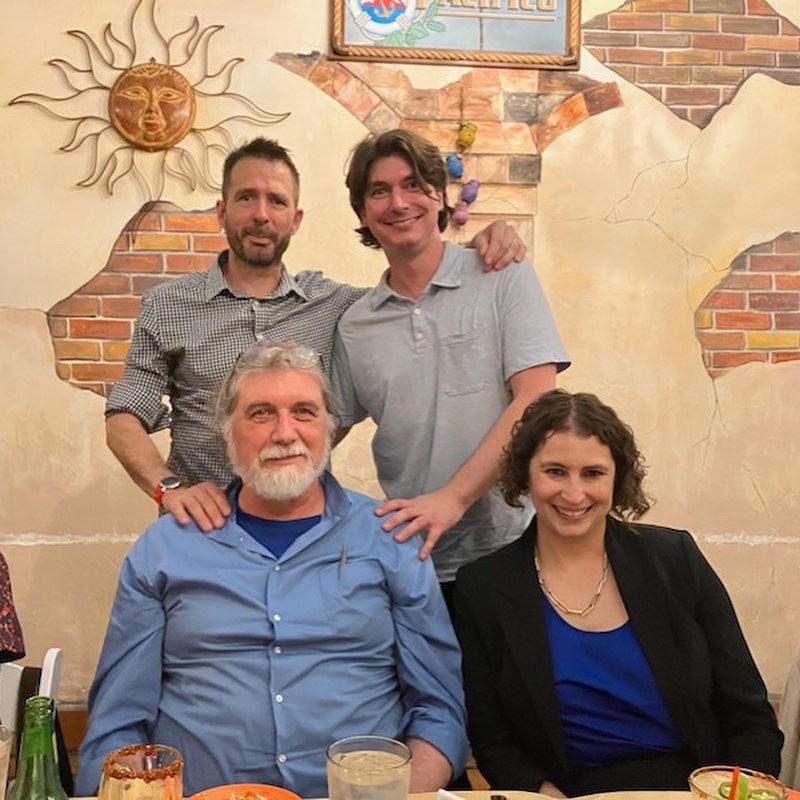
Left: Travis Bruce and Michael Sanders
Above: Antonio Zaldivar & Joe Garcia with Dr. Simon
Dr. Sally Hadden, Professor of History visited England's National Archives in London. In July, the National Archives' staff invited 35 legal historians for a "jamboree"--they each made brief presentations about their favorite legal documents. Hadden spoke about T 1/485/306-309, a document found in the Treasury (T) records series and it was written only a few years before the American Revolution began.
The document is a legal opinion issued by English Attorney General Edward Thurlow, sent to the Privy Council when they asked his advice. In the American colonies, judges had been refusing through the 1760s to issue writs of assistance to facilitate searches of ships and warehouses for smuggled goods. They resisted, despite direct instructions from the Privy Council that judges had the authority to issue the writs. Finally, in 1771, the Privy Council asked Thurlow what could be done about the colonial judges' refusal to act? “What Measures” could be used to force the courts to issue the writs? Thurlow was at a loss. “I know of no direct, and effectual means…to compel the Judges of the chief courts in the Colonies to award the writ of assistance.” His only suggestion was to impeach the judges for failing to “execute an English act of Parliament.” Even so, he despaired of how widely legal opinions differed on the writs—“it seems strange indeed, that any Judge in the Colonies should think the Laws of the Mother Country too harsh for the temper of American Liberty.”
This fall Dr. Linda J. Borish, Professor of History, published a scholarly article with M.A. student Harrison P. Compton, for the refereed journal Olympika: The International Journal of Olympic Studies. The article titled, “Charles L. Ornstein , the National Jewish Welfare Board, and the Jewish-American Quest to Deny the Participation of the United States in the 1936 Berlin Olympic Games,” (XXXII -2023) uses archival records from the National Jewish Welfare Board, the Avery Brundage Archives, and others. A College of Arts and Sciences Discovery and Dissemination Grant aided Borish and Compton in 2023, and Compton did research on American Jewish periodicals for the article.
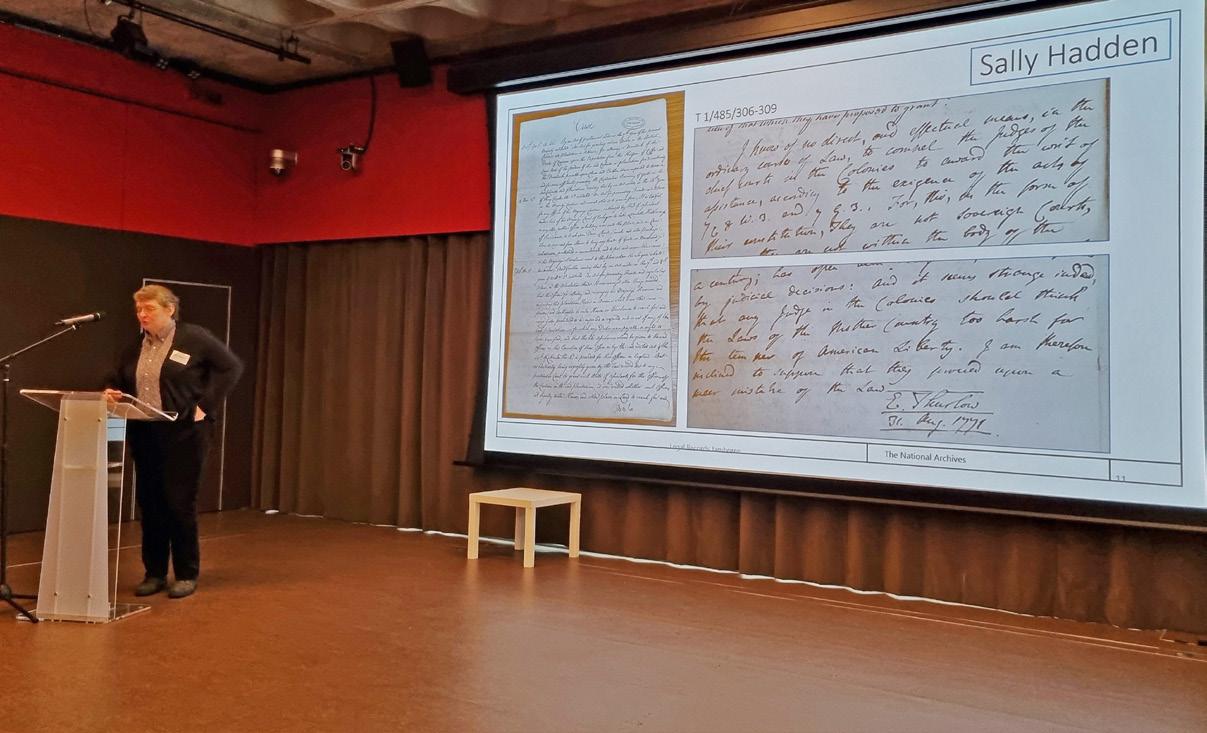
Timothy and Jane Stoepker History Completion Scholarship Undergraduates
De'Metri Zobro-Taft
Ella Nelson
A. Edythe Mange Distinguised Scholarship
Dr. Dale P. Pattison Endowment Scholarship
History Internship Scholarship
Haynor Endowed Scholarship
Undergraduate Fellows Emeriti Grant
Abigail Ward Presidential Scholar Award
Bailey Miller
Dr. H. Nicholas Hamner Undergraduate Award
Arts & Sciences Research & Creativity Award
Ava Bos
Margaret MacMillan Undergraduate Writing Award
Alexandra Jonas
A. Edythe Mange Distinguished Scholarship
Francesca Parrillo
Dr. Smith Burnham Prize in History
Ahmon Cooper
Malia Garrison
Benjamin Smith
Haynor Endowed Scholarship
Kiersten Lawrence
Cheryl Lyon-Jenness Undergraduate Writing Award
Moira Cooper
A. Edythe Mange Distinguished Scholarship
Jason Rose
Ph.D Research & Creative Scholar Award
Dr. Nora Faires Research & Travel Award
The Graduate College Gwen Frostic Doctoral Fellowship
Ruth Aardsma Department Travel Award
Jack MacDonald
Dr. Sherwood Cordier M.A. Teaching Effectiveness Award
Stephanie Falkowski
Dr. Sherwood Cordier Ph.D Teaching Effectiveness Award
Judith F. Stone Award
Ernst Breisach Award for European History
Junghyun Kim
M.A. Research & Creative Scholar Award
The purpose of Phi Beta Kappa is to recognize and encourage scholarship, friendship, cultural interests, and to support excellence and integrity in the pursuit of the arts and sciences. These four History students qualified for induction into this prestigious academic society, and we congratulate each of them on their accomplishment.
Colby Devries
Alexa Gravitter
Madaline Lankford
Abigail Ward
Much like the Boston Tea Party, Phi Alpha Theta has made a splash with some revolutionary new ideas for our organization this year. We’ve hosted various events, most prominently a number of meet-and-greets between the students and faculty, with the addition of pizza to encourage participation. We’ve also organized a visit to Dr. Benac’s for the purpose of learning more about internships and had the pleasure of having Dean Wetzel in our class to discuss his experience as a Public History major. We aspire to bring a balance between academia and fun through weekly trivia games and a number of debates on historical figures.
As Sun Tzu famously said, “In the midst of chaos, there is also opportunity.” So, we are energetically pursuing several projects as the year ramps up in activity, such as making t-shirts for our students, organizing a bake sale, and volunteer opportunities. We also aim to get more involved with the national Phi Alpha Theta organization. Lastly, while we may be history majors, there is value in adaptation, so while limited, we aim to utilize social media to spread our message and plant the seeds of enthusiasm for history in the hearts of the student populace. We will continue uplifting our students and supply a network of fellow scholars, resources, and a sense of community for those who join.
- Lily Anderson, chapter president

President-Lily Anderson, Vice President-Lucas Laaksonen
Treasurer-Brandon Darling, Administrative Secretaries-Everett Phipps, Cynthia Slater Webmaster-Moira Cooper, Scribe-Charlie Porter with various faculty members
Pictured right: Students in Dr. Pérez-Villa’s fall The Historian’s Craft class (HIST 2900) visited the Zhang Legacy Collections this fall to learn more about archival practices after reading Arlette Farge’s The Allure of the Archives. They were joined by Venezuelan scholar Evelyne Laurent-Perrault who was in Kalamazoo that day.
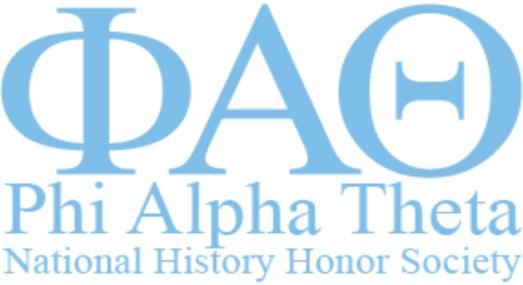
We are a professional society whose mission is to promote the study of history through the encouragement of research, good teaching, publication and the exchange of learning and ideas among historians. We seek to bring students and teachers together for intellectual and social exchanges, which promote and assist historical research and publication by our members in a variety of ways.

Grace Green - Accelerated MA Program
Recent graduate of Aquinas College with a BA in History with a minor in Spanish. Research focuses on Latin American political and social history during the Cold War. Grace will continue this primary focus that stems from a thesis she wrote about Operation Condor & Los Desaparecidos.
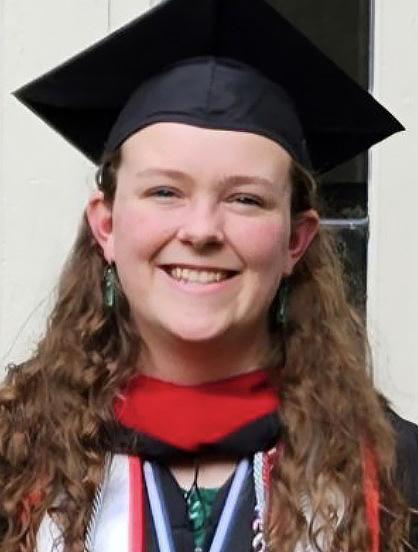
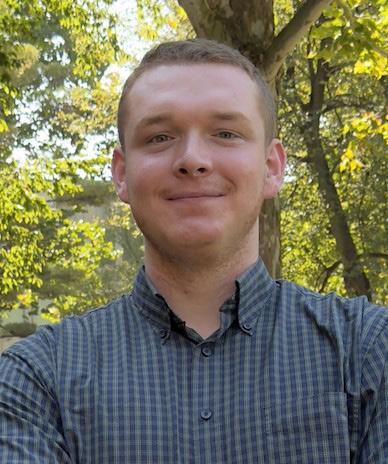
Zachary Potter-Zimmerman - MA Program
University of Florida graduate with a BA in History and a minor in Anthropology. Completed a thesis on pilgrims in 15th Century Lübeck. Zachary's interests are in religious, social and urban histories of the Baltic Sea region in the late Middle Ages and early modern periods.
Halle Martin - Ph.D Program
First-year Ph.D student for Medieval History. Halle focuses on 12th Century Ecclesiastical Latin land charters and their political and legal subtext. Prior academic stops include Florida State University for an MA in Classical Civilizations and a BA from St. Norbert College.

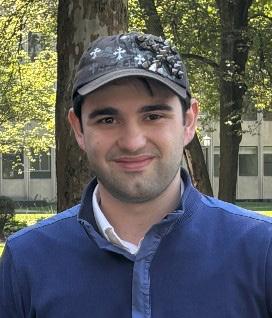
Spencer Fox
BA: History
Madaline Lankford
BA: History
Bailey Miller
BA: History
De'Metri Zobro-Taft
BA: History
Michael Tyler
BA: Public History
Jack Margiotta - MA Program
Franciscan University of Steubenville graduate with a major in History and a minor in English focuses on the French and English nobility of the 12th and 13th centuries, especially subjects like chivalry, courtly love, and romance literature. He wrote a thesis titled "The Law of Arms: The Impact of Chivalry on Medieval and Modern Rules of War" where he discussed how chivalry affected the conduct of knights in warfare and its relevance to modern laws of war. Continues to research the true significance of medieval ideas to the modern world.
Abigail Ward
BA: History
Nolan Becker
BA: Public History
Junghyun Kim
MA: History (Thesis)
Emmy Wade
MA: Public History
We had a lot to celebrate in 2024! Two Master’s students successfully defended their Theses. Junghyun Kim defended his Thesis entitled “Bringing About Modernity: A Comparative Study of Urban Development in Korea that Connects East Germany and the Two Koreas” in the Spring, and Eric Morningstar defended his Thesis entitled “Understanding the Performance and Perception of Odawa Warfare, 1615-1700” in the Fall. Emmy Wade also successfully finished her Master’s in Public History over the summer.
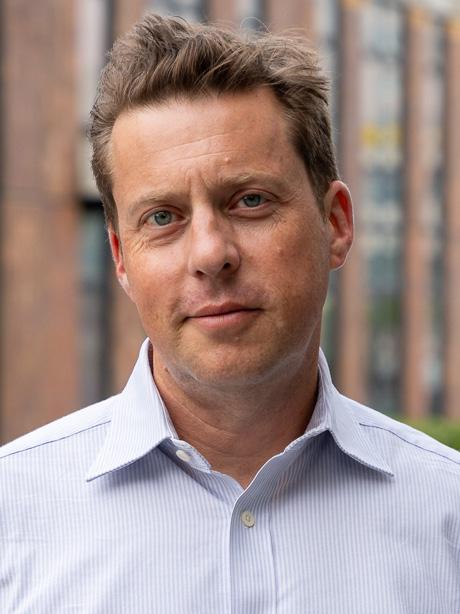
In the Spring, four WMU students were awarded teaching and research awards from the Department. Jack MacDonald won the MA-level Departmental Teaching Award for his excellent work as a TA. Macdonald, who is studying medieval history, has also become the President of the History Graduate Student Organization (HGSO). Junghyun Kim won the MA-level Departmental Research Award, for his thesis on housing in East Germany and Korea in the Cold War.
Stephanie Falkowski won the PhD-level Departmental Teaching Award, for her work as an instructor for History 1000, the first half of Modern Western World. And Jason Rose won the PhD level Departmental Research Award for the progress he’s made on his dissertation, entitled “Contested Americanism: The Klan, Public Education, and Popular Resistance, 1915-1932.”
Falkowski was also the recipient of the Ernst Breisach and Judy Stone Awards, both of which she used to fund her summer research on her dissertation project, entitled “Riccoldo da Montecroce’s Contra legem Saracenorum: The Text, its Transmission, and Legacy” to travel at the Hill Museum and Manuscript Library in Collegeville, Minnesota. Rose was the recipient of the Nora Faires Award, which he used to travel to Kansas and Colorado to complete the research for his dissertation, which he hopes to defend at the end of the 2024-2025 year. Rose also was awarded the Gwen Frostic Dissertation Fellowship, awarded by the University to excellent PhD students at the writing stage of their dissertations.
Finally, the Department was joined by six new students: Spencer Fox and Peter Noreen began their MA programs focusing on 20th century German history; Fox will be focusing on the military history of the German Wehrmacht in World War Two, and Noreen on Arab-speaking migrants in postwar Germany. Zachary Potter-Zimmerman began his MA program focused on religious migrants in early modern Germany, along the Baltic Sea; Jack Margiotta began his MA program interested in notions of chivalry in medieval England and France; Grace Green began her MA program as our first “4+1” student, meaning she participated in a joint program between WMU and Aquinas College in Grand Rapids, whereby up to 12 undergraduate credits may apply towards MA graduate credits at WMU. Green is studying the history of the “Dirty War” in Argentina. Finally, Halle Martin began her doctoral program after receiving her MA from Florida State University. Martin is a recipient of the prestigious University Doctoral Fellowship.
The History Graduate Student Organization (HGSO) is an organization composed of graduate students of the Department of History as well as graduate students from WMU who have a deep interest in History as an area of study. Our organization is dedicated to improving the academic, social, and personal growth of its members and helping those at Western to be better scholars, students, teaching assistants, and instructors. In the last year the number of dues-paying members has more than doubled, with the incoming cohort greatly contributing to the expansion of the organization and the scope of our planned events. Our first fundraising partnership with Waldo’s Campus Tavern, the creation of HGSO social media accounts (@WMUHGSO), collaborations with Phi Alpha Theta for Spring Semester Events, and events such as on-campus movie nights are all expected to help foster a sense of community and energize our members and all of those involved.
The board this year is comprised of: Jack MacDonald (President), Halle Martin (Vice-President), Maxxwell Vanzant (Secretary), and Jason Rose (Treasurer).
History continues to offer excellent educational opportunities to graduate and undergraduate students. Thanks to your generosity, faculty and students have financial support for travel to carry out research and present their scholarship at conferences. We also have funds for incoming or current history majors to reward them, via scholarships and grants, for their outstanding achievements while in our programs. Our highest priority needs are (1) undergraduate student scholarships to assist with tuition costs that help us attract more History majors and (2) graduate student research support that provides financial assistance to release from teaching duties to complete theses or dissertations. Your generosity can go directly to the department’s general fund or a specific scholarship. Our online department giving page has been updated to reflect these options. Please consider making a gift at http://wmich.edu/history/giving or by scanning the QR code.
Your support can go toward these areas:
• The History Fellowship supports full-time freshman students in a History major with a qualifying GPA.
• The Dr. Sherwood Cordier Endowment for Teaching supports M.A. and Ph.D-level graduate students for innovation in the teaching of History.
• The Dr. Ernst Breisach Endowment for European History provides travel & research support for the study and teaching of European history.
• The Dr. Nora Faires Endowment Fund supports graduate student travel and research in their program of study.
• The Dr. Catherine J. Julien Endowment supports students with a research focus in Latin American history.
• The Dr. Dale P. Pattison Endowment supports undergraduate students’ activities in the study of history.
• The Dr. Peter J. Schmitt Endowment supports learning experiences associated with the study of the arts and the natural world.
• The D.C. and Zoa D. Shilling Endowment supports student-oriented programs within the Department of History.
• The Dr. H. Nicholas Hamner Endowed Speaker Fund supports an annual lecture event.
• The Dr. H. Nicholas Hamner Undergraduate Support Fund helps cover student expenses & activities.
• The Joseph L. Peyser Endowment supports graduate students in the field of New France or French colonialism.
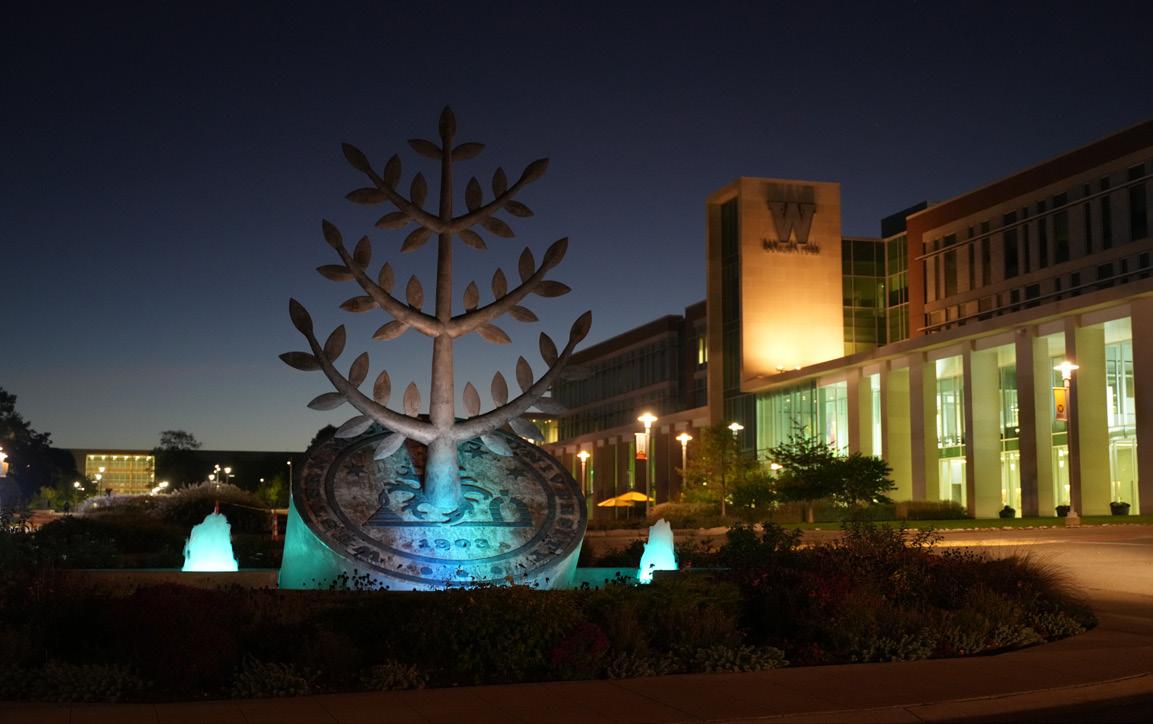
Thank you for considering a gift to the Department of History.
Your gift is an investment in our students today and a brighter, more empowered tomorrow for generations to come. With your support, we can provide our students with scholarships and experience-driven learning opportunities that spark generational change.
- The WMU Advancement Team


Burnham Macmillan Society ($100,000 or more)
Mr. Timothy and Mrs. Jane Stoepker
Friend of Clio ($25,000 - $49,000)
Mr. Alan and Mrs. Denise Holck
Patrons ($5,000 - $24,999)
The Honorable Charles Binder & Mrs. Pamela Binder
Mr. John Klarr and Dr. Patty Klarr
Dr. Kelly Pattison
Dr. Lee Olm
Mr. Gerald & Mrs. Constance Szirtes
Benefactors ($1,000 - $4,999)
Miss Cary Anderson
Dr. Jennifer Black and Mr. Travis Black
Mr. Roger Bruton
Mr. Eric & Ms. Cheri Dobberteen
Mr. Wayne Geik
Mr. John and Mrs. Shelaine Gilmer
Mrs. Ann Haight and Dr. Bruce Haight
Mr. James Hewitt
Mrs. Linda & Mr. Steven Jacobs
Mr. James Karagon
Mr. Jason & Mrs. Kathryn Kaspzyk
Dr. Eric Kirby
Mrs. Dawn Mack and Mr. Jay Mack
Mrs. JoAnn & Mr. John McIntosh
Mrs. Gloria and Mr. William Messner
Mr. Clyde Robinson and Ms. Carol Robinson
Mrs. Mary Strong
Mr. Douglas VanderFord
Mrs. Ruth Writer
Mr. William Zimmerman
Contributors (Up to $999)
Mr. Terry Armstrong
Mr. Paul & Mrs. Mary Asbury
Mr. Mike Balyo
Mr. Gilbert & Mrs. Janise Barker
Ms. Joan Bauer
Mrs. Laura Bollman
Ms. Anne Borish
Dr. Linda Borish
Mr. Philip Brady
Mr. Neil and Mrs. Susan Browne
Mr. Russel and Ms. Joanna Cannon
Dr. Caitlyn Dial
Mr. Bruce and Mrs. Jacqueline Eddy
Dr. Cork Eringaard
Mr. Michael Gilchrist
Mr. Rolf Grandstaff
Mr. Kenneth Kolk
Dr. James & Mrs. Lynn Longhurst
Ms. Vaughn Love
Mr. Timothy Mason
Mr. Gary Mattison
Mrs. Ruth McWebb
Mr. Thomas & Mrs. Glynis Miller
Mr. Jack and Ms. Karen Milito
Mr. Christopher Nagy
Dr. Donald Nichols
Mrs. Barbara Priest
Mr. James Ready III
& Mrs. Roseann Ready
Mrs. Victoria Reis
Mrs. Dumitra Rosu-Dona
Ms. Mary Schaeffer
Miss Teresa Sharon
Mrs. Karen &
Dr. Michael Szymanski
Lt. Col. Thomas Vance & Mrs. Kathleen Vance
Editor Kevin Bunkley
Associate Editor Dr. Linda Borish
Student Assistant Drew Johnson

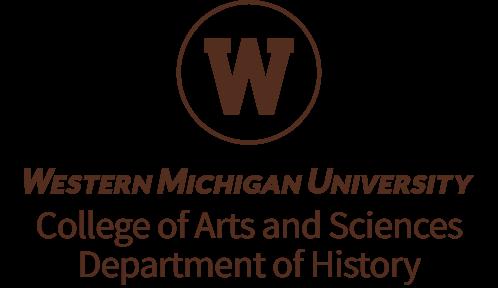
Printed By
